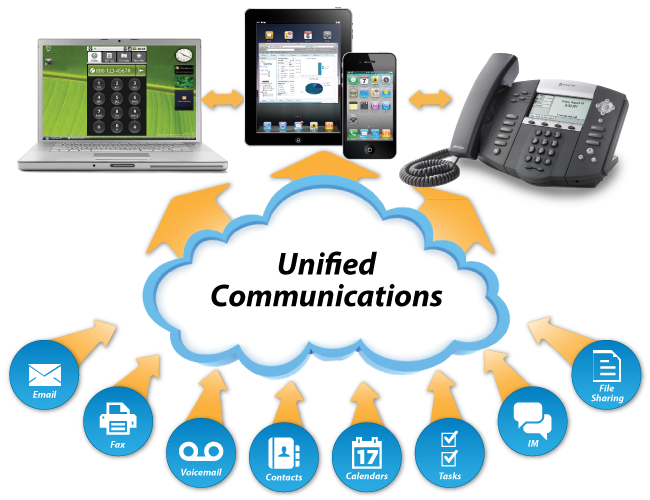medical records
See the following -
HHS Releases Interoperability Rules
 The U.S. Department of Health and Human Services (HHS) today proposed new rules to support seamless and secure access, exchange, and use of electronic health information. The rules, issued by the Centers for Medicare & Medicaid Services (CMS) and the Office of the National Coordinator for Health Information Technology (ONC), would increase choice and competition while fostering innovation that promotes patient access to and control over their health information. The proposed ONC rule would require that patient electronic access to this electronic health information (EHI) be made available at no cost.
The U.S. Department of Health and Human Services (HHS) today proposed new rules to support seamless and secure access, exchange, and use of electronic health information. The rules, issued by the Centers for Medicare & Medicaid Services (CMS) and the Office of the National Coordinator for Health Information Technology (ONC), would increase choice and competition while fostering innovation that promotes patient access to and control over their health information. The proposed ONC rule would require that patient electronic access to this electronic health information (EHI) be made available at no cost.
- Login to post comments
HHS, VA Go Granular In Info Exchange Demo
HHS and the U.S. Veterans Affairs Department have demonstrated the successful use of technology to persistently enforce federal patient consent requirements at the "granular" data element level, HHS announced. Read More »
- Login to post comments
HIMSS19: Open Source Software for Disaster Preparedness and Response
 Although not officially listed as a track at the HIMSS19 conference, there are a series of very important presentations on the use of open source software for disaster preparedness and response. This is a critical topic that we have covered extensively in Open Health News. As we detailed in this article, there was a major failure in being able to provide victims of Hurricane Harvey, as well as Hurricane Irma and Hurricane Maria with access to their medical records. Few emergency medical responders could access their records either. The two success stories that came out of the hurricanes were two open source electronic health record (EHR) systems, OpenEMR and the VA's open source VistA EHR.
Although not officially listed as a track at the HIMSS19 conference, there are a series of very important presentations on the use of open source software for disaster preparedness and response. This is a critical topic that we have covered extensively in Open Health News. As we detailed in this article, there was a major failure in being able to provide victims of Hurricane Harvey, as well as Hurricane Irma and Hurricane Maria with access to their medical records. Few emergency medical responders could access their records either. The two success stories that came out of the hurricanes were two open source electronic health record (EHR) systems, OpenEMR and the VA's open source VistA EHR.
- The Future Is Open
- Login to post comments
HL7 Developing New Health Care Messaging Standard
A new HL7 standard, called Fast Health Interoperable Resources (FHIR), could allow clinical research organizations to extract data from patients' records. Read More »
- Login to post comments
How Medical Device Manufacturers Inject Copyright Into Treatments
 Arguments for proprietary data hoarding have been aired in the computer movement for decades, and have been decisively overturned by open source advocates and security experts. The real question is why any patient should be denied access to data that can improve his quality of life and chances of survival. In an age where "patient activation" and "Quantified Self" are buzzwords uttered throughout the medical industry, it is inconceivable that it could tolerate the present situation.
Arguments for proprietary data hoarding have been aired in the computer movement for decades, and have been decisively overturned by open source advocates and security experts. The real question is why any patient should be denied access to data that can improve his quality of life and chances of survival. In an age where "patient activation" and "Quantified Self" are buzzwords uttered throughout the medical industry, it is inconceivable that it could tolerate the present situation.
Humetrix Unveils New Emergency BlueButton App
Humetrix announces an update to the company’s BlueButton app that allows Humetrix to significantly expand the apps target audience. The new app does not rely on payer or health system data, which it currently only receives from the VA, CMS, and a handful of HIEs. Because of this, Humetrix will be able to market the app as a means of facilitating health data exchange for anyone interested in doing so. Read More »
- Login to post comments
Humetrix Upgrades iBlueButton App To Support Caregivers; Demos New Features At 2014 International CES Booth 26327 Digital Health Summit
Humetrix will preview version 5.0 of its signature iBlueButton app, enhanced with “caregiver” features that allow anyone to view, download and share with doctors their own medical records, as well as those of loved ones, all via their smart phone or tablet. Read More »
- Login to post comments
Hurricanes Harvey and Irma Draw the Line - Time for the US to Embrace Open Source Emergency and Disaster Response
 For nearly 20 years now the global open source community and applications have been a keystone to disaster relief efforts around the world. The enormous number of disaster relief applications and knowledge that has been developed through all these years, should, and needs to be leveraged in the current crisis. For that reason, Open Health News is starting a series of articles to highlight some of the most important solutions. A substantial portion the open source applications for emergency and disaster response that exist are actually already on the news website in the form of articles and resource pages.
For nearly 20 years now the global open source community and applications have been a keystone to disaster relief efforts around the world. The enormous number of disaster relief applications and knowledge that has been developed through all these years, should, and needs to be leveraged in the current crisis. For that reason, Open Health News is starting a series of articles to highlight some of the most important solutions. A substantial portion the open source applications for emergency and disaster response that exist are actually already on the news website in the form of articles and resource pages.
- The Future Is Open
- Login to post comments
IBM's Watson Wants To Fix America's Doctor Shortage
The supercomputer's greatest opponent may be the American healthcare system Read More »
- Login to post comments
ICEBlueButton "In Case Of Emergency" App From Humetrix Now Available At iTunes App Store And Google Play
Anyone with a smartphone can now ensure that emergency responders can see their health history, and loved ones get notified if they are in an accident or face a medical emergency. Humetrix, a leading provider of consumer healthcare apps, today announced that its "In Case of Emergency" (ICE) app, is now available for download to iOS and Android devices. Read More »
- Login to post comments
Is an Open Source EMR (OpenEMR) the Right Choice for Medical Practices?
 Being the lead developer of OpenEMR, the world’s most widely deployed open source electronic medical record (EMR) system, I field calls on a daily basis from people who want to implement it. As part of the due diligence to discover and deliver the best possible outcome for the client, we give them a set of different implementation options that they can consider. The options range from a basic OpenEMR implementation at their offices, to a far more advanced and feature-packed “cloud” solution called BlueEHS.
Being the lead developer of OpenEMR, the world’s most widely deployed open source electronic medical record (EMR) system, I field calls on a daily basis from people who want to implement it. As part of the due diligence to discover and deliver the best possible outcome for the client, we give them a set of different implementation options that they can consider. The options range from a basic OpenEMR implementation at their offices, to a far more advanced and feature-packed “cloud” solution called BlueEHS.
- Login to post comments
Is Cloud Faxing the Solution to the Health IT Usability and Interoperability Crisis?
 The Healthcare industry is in profound crisis as the HITECH Act of 2009 led medical facilities across the United States to spend in excess of $3 trillion on the purchase and implementation of expensive electronic health records (EHRs) under the Meaningful Use program. Yet, the most fundamental goals of electronic records Nirvana that were promised have not been achieved. For multiple reasons, EHRs have turned out to lack usability and be non-interoperable. In fact, most monopoly EHR vendors are engaged in what is commonly called “data blocking.” In most cases physicians are unable to obtain medical records for the patients they are seeing and patients have a hard time getting a hold of their own medical records. That means that the medical records are not available at the most important moment, the caregiver/patient encounter, and are not available to the patients themselves and their family members.
The Healthcare industry is in profound crisis as the HITECH Act of 2009 led medical facilities across the United States to spend in excess of $3 trillion on the purchase and implementation of expensive electronic health records (EHRs) under the Meaningful Use program. Yet, the most fundamental goals of electronic records Nirvana that were promised have not been achieved. For multiple reasons, EHRs have turned out to lack usability and be non-interoperable. In fact, most monopoly EHR vendors are engaged in what is commonly called “data blocking.” In most cases physicians are unable to obtain medical records for the patients they are seeing and patients have a hard time getting a hold of their own medical records. That means that the medical records are not available at the most important moment, the caregiver/patient encounter, and are not available to the patients themselves and their family members.
- The Future Is Open
- Login to post comments
Italian Man Makes Worldwide Plea For Best Brain Cancer Treatment
Salvatore Iaconesi is looking for a cure for his brain cancer and he’s asking the world to help. Read More »
- Login to post comments
Logging On For Life
Digital access to medical records empowers patients through better communication, smarter decisions, and continuous health tracking online. Read More »
- Login to post comments
Medicine 2.0 Day One
My schedule only allowed me to attend Day One of the fantastically rich Medicine 2.0 Congress being held this weekend in Boston. I thought I’d share my impressions and notes in case they spark inspiration for other people, as each presenter and hallway conversation did for me. Read More »
- Login to post comments